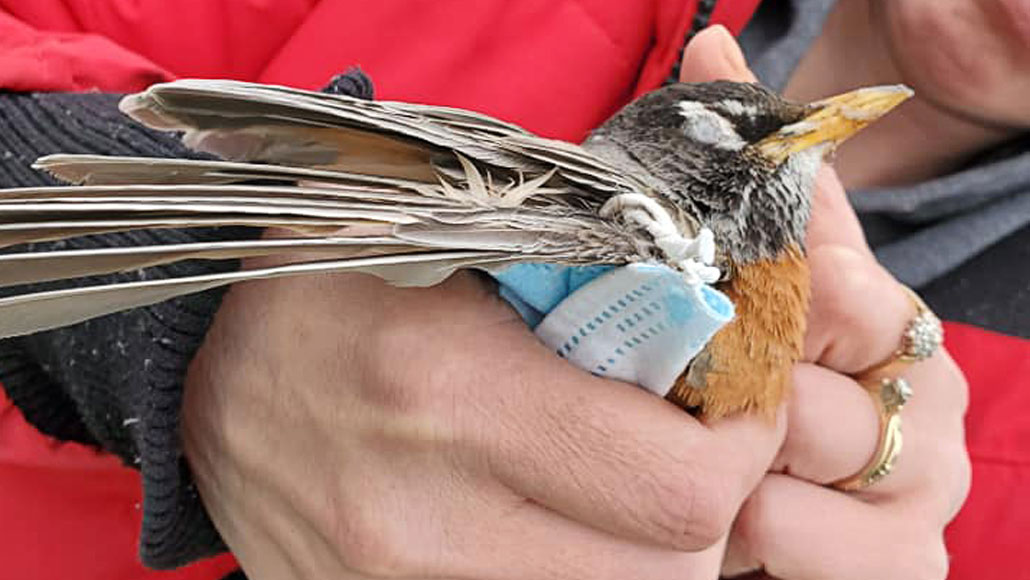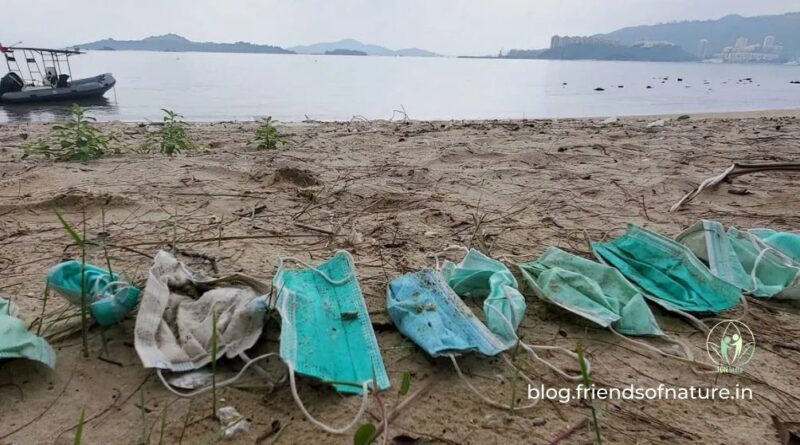Discarded PPE can be deadly to wildlife
In the pandemic, the thin layer personal protective equipment (PPE) will protect us and others from transmitting and contracting SARS-CoV-2, scientists are now beginning to understand just how harmful these objects can be for ecosystems and wildlife.
Wildlife and ecosystems around the world are suffering from the impact of discarded single-use COVID-19 protective gear, researchers warn March 22 in Animal Biology. Latex gloves and polypropylene masks which protect people from the coronavirus are exacerbating the plastic pollution problem when not disposed of properly and are causing wildlife deaths. The study is the first global documentation of the impacts of COVID-19 litter on wildlife via entanglement, entrapment and ingestion.
The demand for PPE has put some countries on a war footing, to give governments sweeping wartime authorities to control the economy and compel private businesses to join national fights against the pandemic. Even the inventor of the lifesaving N95 mask favored by front-line medical workers, Dr. Peter Tsai, said that countries should stockpile PPE as if they were on a war footing. “Weapons are not profitable,” he said in August.

But while these “weapons” that fight coronavirus have proved to be lifesaving for humans, an increasing number of non-human animals are finding them to be a brand-new, and often deadly, threat that has suddenly littered their natural habitat. One main problem is that face masks and latex gloves are disposable, and people often do not dispose of them properly.
According to the World Health Organization, the fabric masks that should be used to fight the pandemic are made of three layers of fabric: an inner layer of absorbent material like cotton, a middle layer of non-woven non-absorbent material, like polypropylene, which is a kind of plastic, and an outer layer of non-absorbent material, like polyester. That means that these masks, if improperly discarded, have the power to threaten ecosystems for many decades, even centuries, to come. Polypropylene takes 20 to 30 years to decompose in a landfill. Polyester can take up to 200 years. Researchers from the University College London Plastic Waste Innovation Hub recently released a report that estimated that about 70,000 tons of plastic waste would be produced if all Britons wore a single-use mask each day for a year.
To curb the growing hazards, the study authors recommend switching to reusables wherever possible, as well as cutting up disposal gloves and snipping the straps off of single-use masks to prevent animals from getting entangled or trapped in them. How all our medical and plastic waste is impacting the natural world and what we can do to reduce this global pollution crisis.
But the situation isn’t always so dire. Some animals have commandeered discarded PPE for their own uses. COVID-19 litter has become so pervasive that birds have been observed using face masks and gloves as building materials for their nests.
With inputs from ecowatch.com and sciencenews.org




